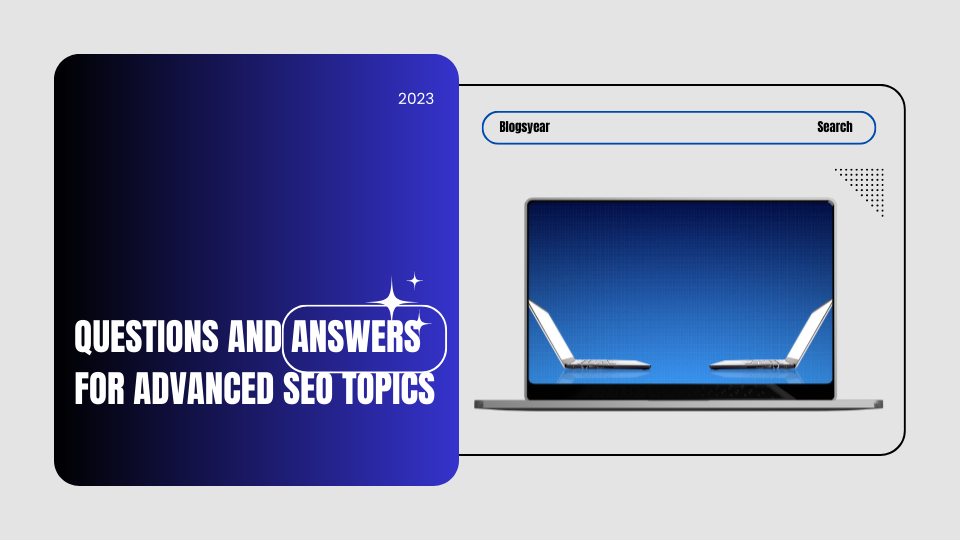Questions and Answers for Advanced SEO Topics – From Semantics to Technical SEO

SEO Chat is a Twitter Event that is held under the SEO Chat hashtag in order to innovate SEO. SEO discussion Mordy Oberstein created a Twitter event to boost SEO conversation, friendship, and knowledge sharing. SEO discussion Twitter Events provide search engine optimization-related questions and answers. The SEOChat questions and answers are a combination of digital marketing information and SEO tactics. SEO Chat is also a Twitter platform name that focuses on sharing SEO Chat events like SEO Chat hashtag events or vcbuzz SEO tweet series. SEO Chat is another moniker for the SEO Forum, which has been inactive for a long time. There is one more SEO Chat sub-forum on the Webmasterworld Forum. The platforms, categories, and profiles of the SEO Chat idea are listed below in this situation.
Also Read:- Improve Your SEO With ChatGPT- Create Topical Clusters And Visualize
Advanced SEO encompasses a wide range of topics, from the intricacies of semantic search to the technicalities of website optimization. Here’s a Q&A format to address some of these advanced topics:
Q1: What is semantic search, and why is it important for SEO?
A1: Semantic search seeks to understand the intent and contextual meaning of search queries rather than focusing solely on keywords. It’s important because search engines, especially Google, have evolved to prioritize user intent and provide results that best match that intent, rather than just matching exact keyword phrases.
Q2: How does Google’s RankBrain algorithm tie into semantic search?
A2: RankBrain is a machine learning component of Google’s core algorithm. It helps Google understand and interpret complex, long-tail search queries and the intent behind them, making it a crucial part of the semantic search process.
Q3: What is structured data, and how does it benefit SEO?
A3: Structured data is a standardized format for providing information about a page and classifying its content. By using structured data (often in the form of Schema markup), webmasters can help search engines better understand the content, leading to enhanced search results and potentially better rankings. It can also result in rich snippets, like star ratings or product prices, appearing in search results.
Q4: How does mobile-first indexing impact website optimization?
A4: Mobile-first indexing means Google predominantly uses the mobile version of the content for indexing and ranking. Given this, websites should prioritize mobile optimization, ensuring content, meta tags, structured data, and other SEO-relevant elements are consistent and user-friendly across mobile devices.
Q5: What is the significance of Core Web Vitals in technical SEO?
A5: Core Web Vitals are a set of metrics introduced by Google to measure user experience on the web, focusing on loading performance, interactivity, and visual stability. They’ve become a ranking factor, making them essential for technical SEO. Sites that offer a better user experience, as measured by these vitals, may see improved rankings.
Q6: How do XML sitemaps aid search engines?
A6: XML sitemaps provide search engines with a roadmap of a website’s structure, highlighting the important pages. This aids search engines in crawling and indexing the site more efficiently, ensuring that valuable content is recognized and indexed.
Q7: Why is hreflang important for multilingual websites?
A7: The hreflang attribute informs search engines about the language and geographical targeting of a page. For multilingual websites, it ensures that the correct language version of a page is presented to users, improving user experience and reducing duplicate content issues.
Q8: How does JavaScript rendering impact SEO?
A8: Search engines can crawl and index JavaScript-generated content, but it’s more resource-intensive than static HTML. If a site heavily relies on JavaScript for critical content or links, it’s essential to ensure that search engines can effectively render and understand that content.
These are just a few advanced SEO topics, and the field is continually evolving. Staying updated with the latest trends, algorithm updates, and best practices is crucial for anyone serious about SEO.








